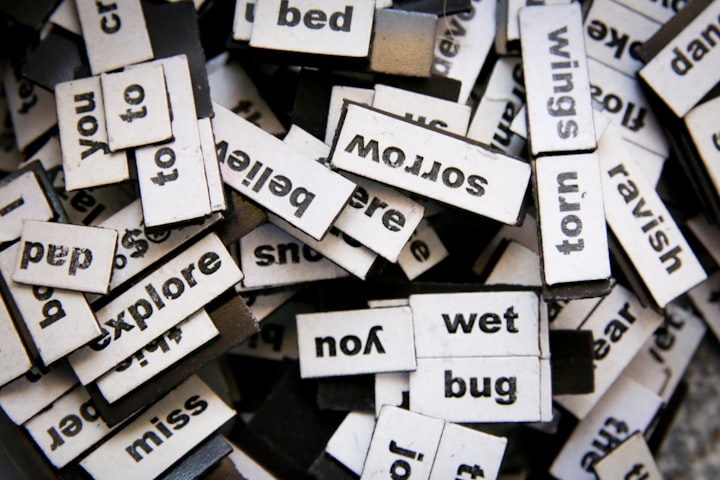I Discovered My True Friends When I Went a Little Cray
Editing my friend list was easy; I have no regrets

Since my series of brain injuries, I’ve thought a lot about friendship. I’ve learned who my friends are, and who they’re not. And I treasure relationships more than ever. I appreciate the love of my friends, but I’ve also had to distance myself from friendships that are emotionally or mentally unhealthy.
In the early stages of my post-concussion syndrome (PCS) and post-traumatic stress disorder (PTSD), I’d make arrangements to get together with friends only to have to cancel at the last minute. I’d be too anxious or depressed or simply emotionally exhausted to interact, and going to parties or ‘loud’ locations would seriously overwhelm my mental state.
Most friends tried to understand. Few actually did. But I ‘get’ it. I was (and sometimes still am) socially unreliable, and while I love a good time with friends, I remain easily overwhelmed and exhausted in social situations. You may see me leave a crowded room…I may go outside for air or hide out in a washroom stall until I can rejoin the party. I should mention that if I’m at your home and you have a cat, I’ve likely gone somewhere quiet…with your cat. Or I may stare off into space while you’re telling me something. It’s not you, it’s me. Unless, of course, you’re boring me, and then it IS you.
________________________________________
I’ve lost three very close friends since my accident.
OK, I’ve probably lost more than three (hey, mental health issues can do that to friendship), but three of my closest male friends have passed away. Two of those three stuck with me through the darkest times, when I was suffering and I desperately needed someone to trust, someone to curse at, someone to listen to my frustrations and absorb my temper tantrums. Someone who knew me. And someone who loved me anyway.
Joe, my friend since high school, kept me laughing when I didn’t think I had laughter in me. Joe also suffered from bouts of severe depression, but he was a comedian by nature and his brilliance shone through his toughest times. Joe was inappropriate, dirty-mouthed, and bigger than life.
The last time I saw him, he told me, “You want to be a writer? You are a writer. Be a writer. Stop with the excuses. Draw a fucking line in the sand and do it.”
That was my Joe. Before I left his house (and unbeknownst to me, the last time I’d see him alive) Joe gave me the biggest, longest, most heart-felt hug I think I’ve ever had. He was giving me the confidence that I needed to get me started on my writing path—and on this book. When he died suddenly, I lost a little of that kick in the backside, but his memory is there to remind me to keep pushing forward. He believed in me when I couldn’t possibly believe in myself, and I am eternally grateful to him.
And then there was Lawrence, my ‘work husband’. Lawrence had a photographic memory and was an IT guy, so he was kind of like an alien but was also one of the kindest people I’ve ever met. Lawrence was my ally during my recovery time at work. There were times I’d run into his office and sob because I was so overwhelmed with cognitive fatigue, and he’d stop what he was working on and just sit with me.
Shortly after I was ‘restructured’ from my job, Lawrence became very ill. I spent time with him in the hospital, just hanging out while he was getting transfusions. He was prone to infections so when I couldn’t visit, we’d text or talk on the phone. Lawrence taught me grace and optimism in the face of insurmountable tragedy. He never let on just how ill he was; sometimes he was delirious but still managed to make sense when we talked.
The last time we spoke was at 11:37 p.m.…much too late for me to be calling anyone, let alone a critically ill friend who was in hospital, but we’d been texting earlier in the evening, and I’d accidentally pocket-dialled him on the way to bed. He answered, and I apologized for calling. But even in his groggy state, he laughed and said, “I’ll consider this pillow talk.”
Those were Lawrence’s last words to me, and I’ll treasure them as I do the text messages I have saved. I still quote him regularly, and I’ll love him forever.
Then there was my third close male friend, someone I will call Peter.*
Peter and I had known each other for years. We’d been colleagues at one time, and forged such a close relationship that others speculated that we were romantically involved, which was never the case. We were just two nerds who’d hang out drinking draft on Fridays after work, and we had similar tastes in movies and books, so we always had lots to talk about.
Peter was an unusual character; his propensity to intellectual superiority made him sometimes difficult to work with. He left a secure job because he couldn’t get along with his higher-ups, and the recession killed his hopes of garnering a similar role elsewhere. He was periodically unemployed and chronically depressed, which was difficult for his ego. When he worked contract, he complained about his employers. As his friend, I attempted to buoy his confidence and his mood. We’d meet for lunch, he’d visit my office, and we kept in touch through social media.
That was, until my PCS-related emotional and mental breakdown kicked in. It’s no exaggeration that it hit suddenly and without warning. One day I thought I was recovering nicely, the next I was full-blown crazy.
I immediately stopped communicating through the usual emails and social media. I was paranoid, anxious and severely, mentally out of whack, and my doc told me to get away from technology. So I tried. But Peter kept tagging me and commenting on my posts, encouraging secondary debate with some of my other social media friends—people he didn’t even know. I tried to explain to him the severity of my irrational mental state, how his actions were making me uncomfortable, and I pleaded with him to stop. A fast and furious email trail ensued; we all know digital communication is fraught with misunderstandings and unintended nuances, and given my state, I suspect there was even more miscommunication than usual. Our argument ended with Peter writing, “Leave me alone. I can’t talk to you when you’re like this.”
So I immediately deleted him, from social media and from my life. My decision was impulsive and made even more so by my illness. I recall thinking that I had supported him through so much during our friendship; that I’d listened and been there when no one else had. Of course, all of my emotions were raw and exaggerated during this time, so I was outrageously and irrationally angry, and my decision was swift and unyielding.
I never heard from him again.
Peter died while I was away on vacation a couple of years ago. I learned about it upon my return, and it saddened me that he likely died bitter and unfulfilled. But I don’t regret our fallout, nor do I wish I had another opportunity to make things right. Friendship takes two, and when one isn’t willing to put in the effort, there’s not a lot the other can do.
After a brain injury, emotions get tangled up. Your friends can’t figure out what’s going on, either. My best female friends have cared for me but kept their distance…except for the one time when my besties had convinced themselves that I was in suicide mode, and they all charged at me with love and fear and concern. Meanwhile, I’d had two glasses of wine and had fallen asleep beside the dog. Looking back on that incident—it’s comical now—I realize how lucky I was to have friends who cared. And thank you, Kim, Sharon, and Dave…uh, and oops, sorry.
I encourage you to look closely at your relationships. There are people who are energy drainers, and friends who won’t accept the new you. I will say it’s often more a reflection on them than it is on you. When you’re ill, don’t chase friendships. Don’t give in to those who want you to focus on their problems while they ignore or minimize yours. You can’t afford to support someone who doesn’t give back.
Tip: There’s a lot you can do for a friend living with brain injury, and much of it has to do with listening. Try not to judge or make demands; while you might wish to gently guide a friend away from poor decision-making, criticism or demands on them just make them more frustrated. Actively listening to what they’re saying is so important. It may not make sense to you, but for the injured, talking to someone who cares is a crucial part of working things through.
For PCS survivors: What’s your take on friendship after brain injury? What’s changed for you? Do you have the same friends as you did pre-injury? Have you built new relationships? Reassessed or rebuilt old or fractured ones? What advice would you give to a friend who wants to help you?
For friends and family: How has your relationship with your PCS friend or family member changed since the injury? Do you think you’ve contributed to the healing process? If so, how? What would you say to others who are going through relationship challenges after brain injury?
* Not his real name. Those who know, know.
About the Creator
Catherine Kenwell
I live with a broken brain and PTSD--but that doesn't stop me! I'm an author, artist, and qualified mediator who loves life's detours.
I co-authored NOT CANCELLED: Canadian Kindness in the Face of COVID-19. I also publish horror stories.







Comments
There are no comments for this story
Be the first to respond and start the conversation.